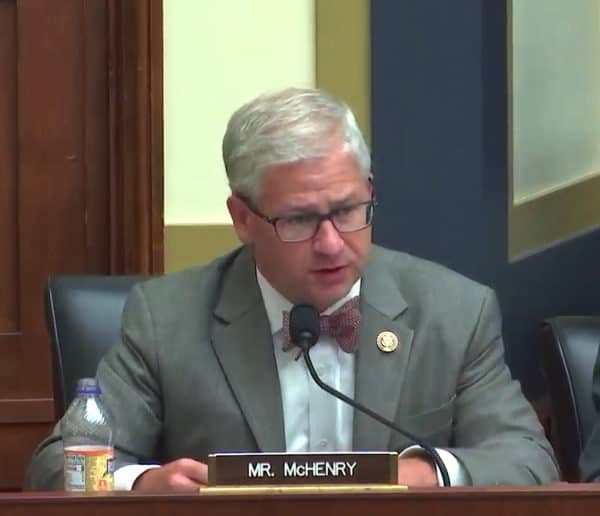
The US House of Representatives passed HR 4860 or the Crowdfunding Amendments Act by a voice vote today thus indicating broad bipartisan support. The bill was part of a grouping of five financial services bills each quickly approved by the House.
The bill was introduced by Representative Patrick McHenry (D-NC), Ranking Member of the House Committee on Financial Services, and Representative Maxine Waters (D-CA), Chairwoman of the House Committee on Financial Services.

McHenry commented on the passage of the bill:
“We all agree small businesses and entrepreneurs are America’s true job creators. This is especially true in communities I represent in western North Carolina. But today, America’s small businesses are still struggling to find capital. Small business lending from traditional banks continues to decline, and small business loans in America’s small towns are less than half they were merely fifteen years ago. Investment crowdfunding is one way we can reverse this concerning trend.”
The Crowdfunding Amendments Act improves upon “Regulation Crowdfunding” or Reg CF by addressing several well-known shortcomings of the law.
In 2012, McHenry wrote the original bill (part of the JOBS Act) to legalize investment-based crowdfunding, making it easier for businesses to raise capital.
This bill is said to fixe crowdfunding’s “12-g problem” by raising the asset threshold for both small businesses that already have revenue, and for those startups that do not, making it more likely that high-growth companies will consider crowdfunding as an option for raising capital.
Additionally, the bill addresses single purpose funds (or SPVs), which are currently not permitted by the SEC. S
“Single-purpose funds” allow main street investors to invest along with more sophisticated lead investors who have an obligation to advocate for their best interests, meaning better terms and greater transparency for investors.
Empirical information regarding the investment crowdfunding industry has proven that combining sophisticated money alongside retail investors can improve results for these same investors. A special-purpose vehicle can act as a single entity to better manage shares held by retail investors while safeguarding the rights of these individuals.
Perhaps the biggest area that is not addressed in the bill is the arbitrary cap on Reg CF which remains at a paltry $1.07 million.
Today, the average seed round in the US is about $2.2 million. Some exceptionally promising early-stage firms raise much more.
If a company seeks to return to a crowdfunding platform and raise a Series A round – it is then difficult to use Reg CF. Smaller investors may be cut out of the equation and, even worse, see existing shareholders diluted by newer investors.
In the UK, the most robust investment crowdfunding market in the world, the cap on crowdfunding is effectively set at €8 million (USD$8.875 million). In the UK, numerous early-stage firms have leveraged crowdfunding and then moved on to become Unicorns – private companies with valuations in excess of $1 billion.
In July of 2018, a letter from prominent Fintech industry members was sent to SEC Chairman Jay Clayton requesting the exemption be increased to $20 million.
Recently, the Association of Online Investment Platforms (AOIP) published a position paper demanding the exemption be increased to just $10 million. Members of the AOIP visited with staffers in Congress this past September advocating on behalf of Reg CF and more.
Regardless of the pressing need to increase the funding cap (and some other issues), Representatives McHenry and Waters should be lauded for moving this positive legislation through the House Financial Services Committee and ushering it to a successful floor vote.
Now it is up to the Senate to act and take advantage of this bipartisan bill.


